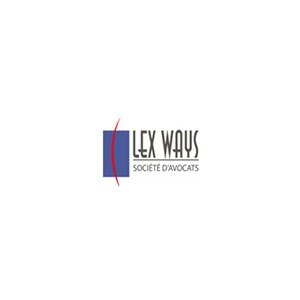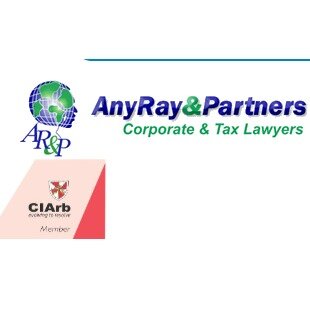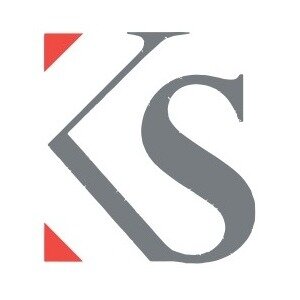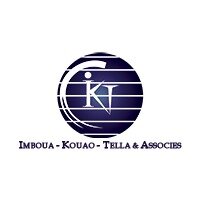Best Banking & Finance Lawyers in Ivory Coast
Share your needs with us, get contacted by law firms.
Free. Takes 2 min.
Or refine your search by selecting a city:
List of the best lawyers in Ivory Coast
About Banking & Finance Law in Ivory Coast
Banking & Finance in Ivory Coast is regulated by a set of laws and regulations to ensure the smooth functioning of the financial sector. The legal framework aims to protect the interests of consumers, investors, and financial institutions while promoting economic growth and stability.
Why You May Need a Lawyer
You may need a lawyer in Banking & Finance in Ivory Coast for various reasons, such as resolving disputes with financial institutions, negotiating loan agreements, navigating regulatory compliance, and handling insolvency or bankruptcy issues.
Local Laws Overview
In Ivory Coast, the banking and finance sector is primarily regulated by the Banking Commission of West African States (BCEAO) and the Ministry of Economy and Finance. Key laws include the Banking Law, the Insurance Law, and the Securities Law, which govern different aspects of the financial industry.
Frequently Asked Questions
1. What are the regulatory requirements for setting up a bank in Ivory Coast?
In Ivory Coast, banks must obtain a license from the BCEAO to operate legally. The regulatory requirements include minimum capital requirements, corporate governance standards, and prudential regulations to ensure financial stability.
2. How can I file a complaint against a financial institution in Ivory Coast?
If you have a dispute with a financial institution, you can file a complaint with the Consumer Protection Department of the Central Bank of West African States (BCEAO) or seek legal assistance to resolve the issue.
3. What are the legal requirements for obtaining a loan in Ivory Coast?
To obtain a loan in Ivory Coast, borrowers must meet the eligibility criteria set by financial institutions, provide collateral if required, and comply with the terms and conditions of the loan agreement.
4. How are banking transactions regulated in Ivory Coast?
Banking transactions in Ivory Coast are regulated by the BCEAO, which sets the rules for electronic payments, mobile banking, and other financial services to ensure transparency, security, and efficiency in the financial system.
5. What are the legal implications of defaulting on a loan in Ivory Coast?
Defaulting on a loan in Ivory Coast can lead to legal actions by the lender, such as seizing collateral, initiating debt recovery proceedings, or filing for insolvency or bankruptcy if the borrower is unable to repay the debt.
6. How can I protect my rights as a consumer of financial services in Ivory Coast?
As a consumer of financial services in Ivory Coast, you can protect your rights by understanding your contractual obligations, seeking legal advice if needed, filing complaints with regulatory authorities, and staying informed about your rights under the law.
7. What are the penalties for financial crimes in Ivory Coast?
Financial crimes in Ivory Coast, such as fraud, money laundering, and corruption, are punishable by fines, imprisonment, or other penalties under the Penal Code and other relevant laws to combat financial misconduct and protect the integrity of the financial system.
8. How can I invest in the stock market in Ivory Coast?
To invest in the stock market in Ivory Coast, you can open a brokerage account with a licensed stockbroker, conduct due diligence on investment opportunities, monitor market trends, and seek legal advice on securities regulations and compliance requirements.
9. What are the key considerations for structuring a financial transaction in Ivory Coast?
When structuring a financial transaction in Ivory Coast, consider the legal, tax, regulatory, and financial implications, engage with legal and financial advisors to assess the risks and benefits, and ensure compliance with applicable laws and industry standards.
10. How can I enforce a financial contract in Ivory Coast?
To enforce a financial contract in Ivory Coast, you can seek legal remedies through the courts, such as filing a lawsuit for breach of contract, obtaining a court order for specific performance, or pursuing alternative dispute resolution mechanisms to resolve the dispute effectively.
Additional Resources
For more information on Banking & Finance in Ivory Coast, you can visit the official website of the BCEAO, the Ministry of Economy and Finance, or consult with local legal experts, financial advisors, and industry associations for guidance on legal compliance and best practices in the financial sector.
Next Steps
If you require legal assistance in Banking & Finance in Ivory Coast, consider contacting a reputable law firm with expertise in financial law, schedule a consultation to discuss your legal needs, and work with experienced lawyers to protect your rights, interests, and investments in the financial industry.
Lawzana helps you find the best lawyers and law firms in Ivory Coast through a curated and pre-screened list of qualified legal professionals. Our platform offers rankings and detailed profiles of attorneys and law firms, allowing you to compare based on practice areas, including Banking & Finance, experience, and client feedback.
Each profile includes a description of the firm's areas of practice, client reviews, team members and partners, year of establishment, spoken languages, office locations, contact information, social media presence, and any published articles or resources. Most firms on our platform speak English and are experienced in both local and international legal matters.
Get a quote from top-rated law firms in Ivory Coast — quickly, securely, and without unnecessary hassle.
Disclaimer:
The information provided on this page is for general informational purposes only and does not constitute legal advice. While we strive to ensure the accuracy and relevance of the content, legal information may change over time, and interpretations of the law can vary. You should always consult with a qualified legal professional for advice specific to your situation.
We disclaim all liability for actions taken or not taken based on the content of this page. If you believe any information is incorrect or outdated, please contact us, and we will review and update it where appropriate.
Browse banking & finance law firms by service in Ivory Coast
Ivory Coast Attorneys in related practice areas.
Browse banking & finance law firms by city in Ivory Coast
Refine your search by selecting a city.












